FIRST ON FOX: Bodycam footage of former Letcher County, Kentucky Sheriff Shawn “Mickey” Stines obtained by Fox News Digital shows the Kentucky State Police (KSP) questioning Stines just minutes after he allegedly shot and killed District Judge Kevin Mullins in his chambers.
In the police interview, taken in the hallway of the Letcher County Courthouse, where the shooting occurred, a “paranoid” Stines continually insisted that police or someone else was about to kill him, a belief which his defense attorney told Fox News Digital was a contributing factor in the shooting on Sept. 19, 2024.
The former sheriff, wearing jeans and polo shirt emblazoned with his title on it, was handcuffed and seated on a chair while being questioned. Throughout the interview, his legs shook and he appeared to scan his environment for potential threats.
KENTUCKY SHERIFF SEEN IN FOOTAGE SHOOTING AT JUDGE IN SHOCKING PRELIMINARY HEARING
He answered few questions about what happened that day, as most of the interview was spent trying to quell his fears.
During the police questioning, Stines asked to be jailed in Letcher County, mere steps away from the courthouse, rather than risk being transported to another facility.
“I leave this building, I won’t draw another breath,” he told KSP Investigator Clayton Stamper, who led the investigation.
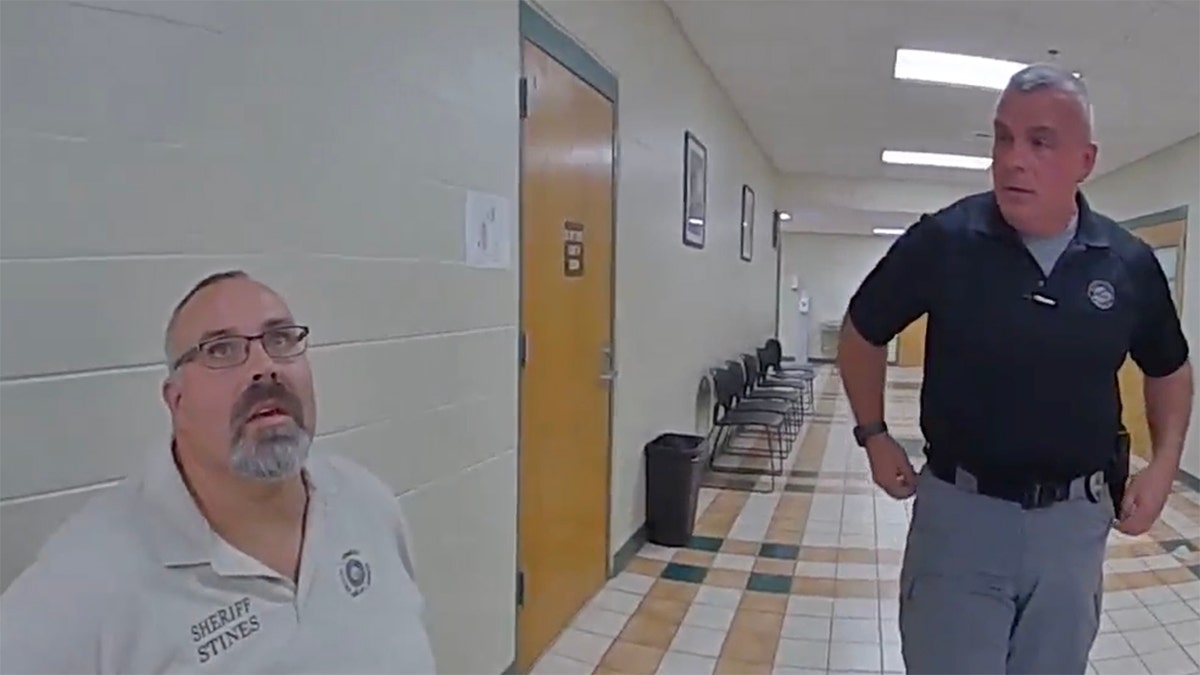
FOLLOW THE FOX TRUE CRIME TEAM ON X
When informed that jailing him in Letcher County would violate protocol, a fact that officers noted he should understand given his position as sheriff of the county, Stines was told that he would be taken to the Leslie County Jail, about an hour away.
“I’ll never make it to the Leslie County Jail,” he told police. “Put me in the Leslie County Jail, I’ll get killed there. I’ll get killed in any jail.”
Police continually reassured Stines that nobody was going to hurt him, but those reassurances fell on deaf ears.
“Mickey, why do you think we’re going to do something to you?” Stamper asked. “Why would we wanna hurt you?”
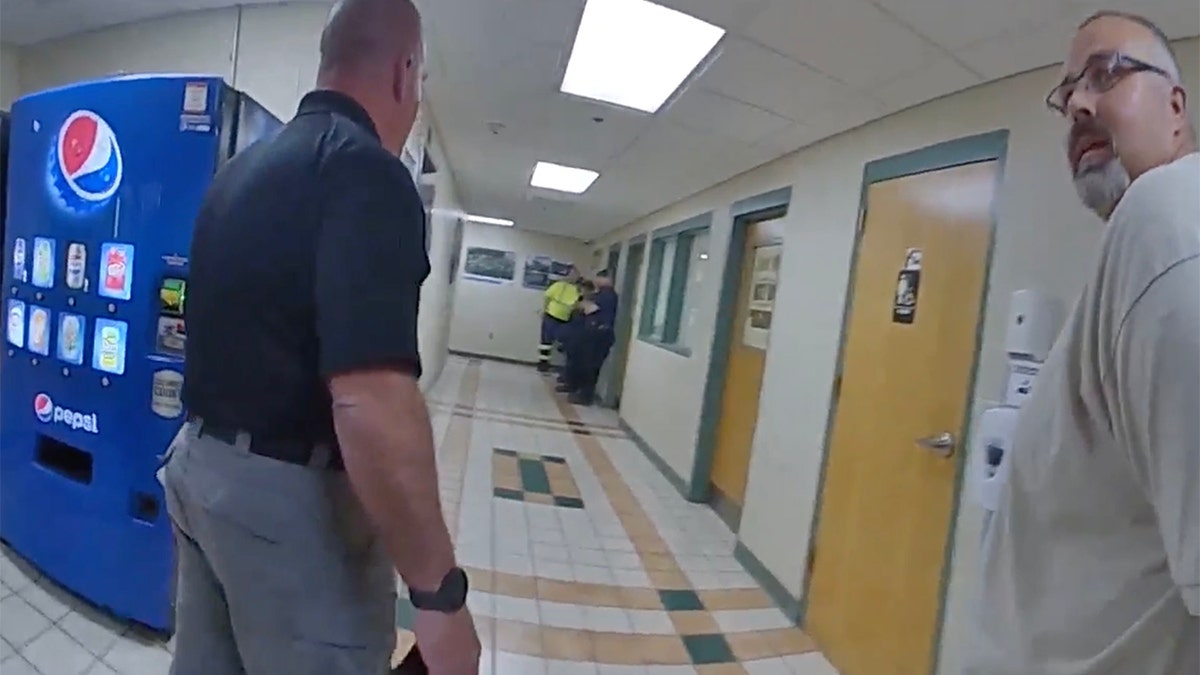
“Well, somebody on the way [to the Leslie County Jail], if y’all stop and let somebody on the way,” Stines said.
“Look, I know that this is obviously a very crappy situation, but I assure you we have no intentions of harming you whatsoever,” Stamper said.
To assuage his fears, police agreed to allow KSP Trooper Jason Bates, a former Letcher County deputy whom Stines has known for years, drive him to Leslie County.
Bates also joined in the interview in an attempt to calm Stines.
Stines, however, still couldn’t shake his fears.
SIGN UP TO GET THE TRUE CRIME NEWSLETTER
“Come on, be fair to me now,” he said to Stamper. “I seen the look… Y’all come on now, don’t kill me. Don’t punish me, you know. Let’s be fair. Don’t shoot me, nothing like that.”
When police were finally able to settle Stines down enough to ask him what led to the shooting, Stines refused to answer.
“Y’all are gonna kill me, aren’t you?” he replied before again asking about the transportation to Leslie County.
“Y’all are gonna kill me, I know you are,” he said. “Let’s just get it over with. Let’s just go.”
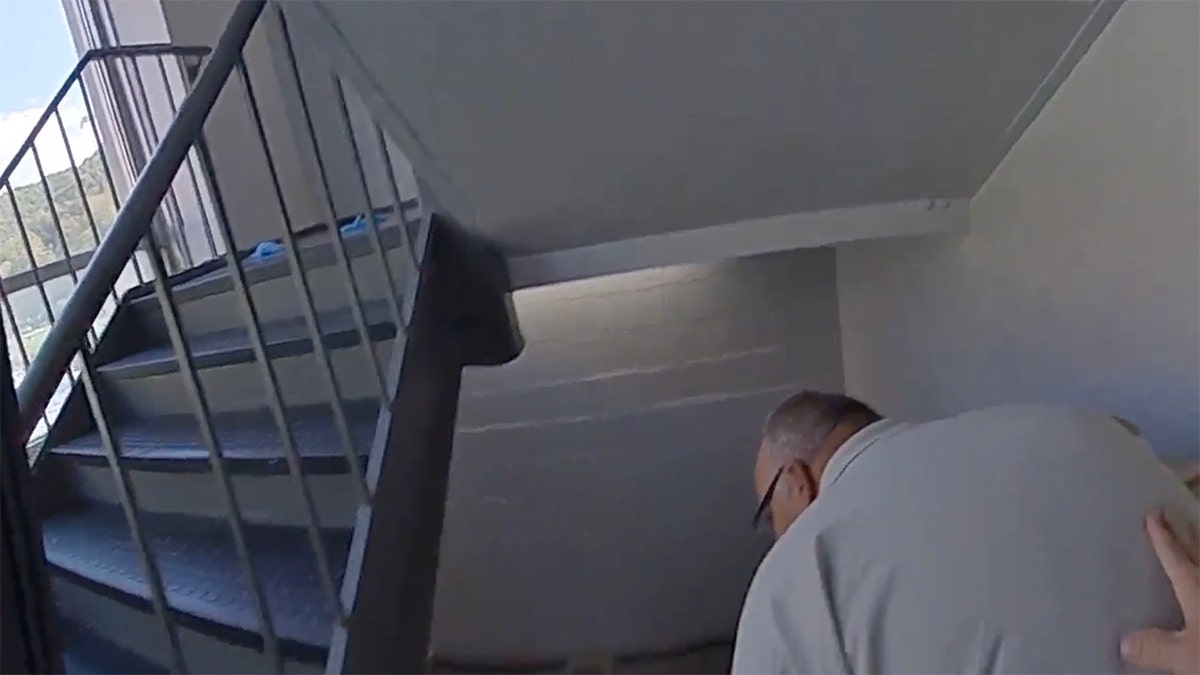
The questioning culminated in a dramatic exit of the courthouse into the jail’s sally port, during which Stines peered through windows and down stairwells, apparently looking for potential threats.
“Come on guys, be fair with me now,” he said on multiple occasions.
A quiet hour-long drive to the Leslie County Jail followed, with the officers asking intermittently if Stines wanted to discuss what happened.
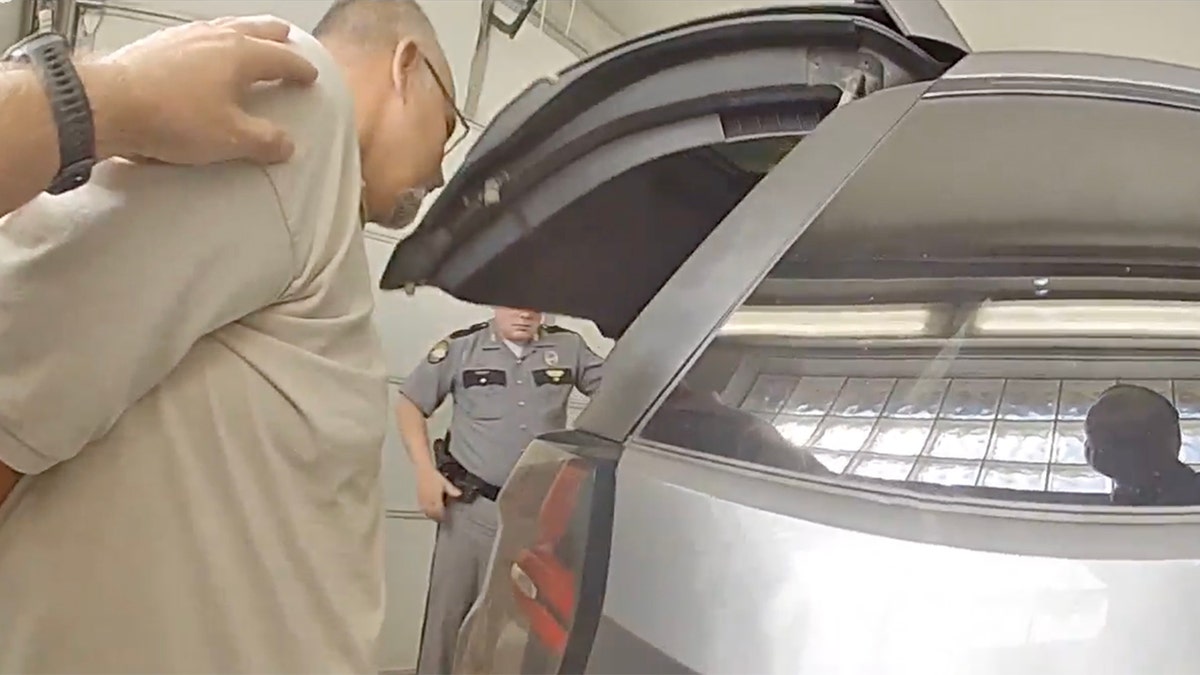
According to Stines’ attorney Jeremy Bartley, fear of blowback against his family stemming from his testimony in a civil lawsuit against a former Letcher County Sheriff’s deputy drove him to the brink.
“Specifically, in the approximate two-week period prior to the incident in the judge’s chambers, pretty much all the witnesses the investigators talked to support what those close to Mickey had said as well,” Bartley told Fox News Digital last week.
“And that’s simply this: Mickey had become extremely paranoid. He’d become sleepless, basically wasn’t sleeping. [He] slept little, if at all. He had sort of become withdrawn. And you know, it was of such a concern that his co-workers urged him to go to the doctor, and he ultimately did the day prior to the shooting.”
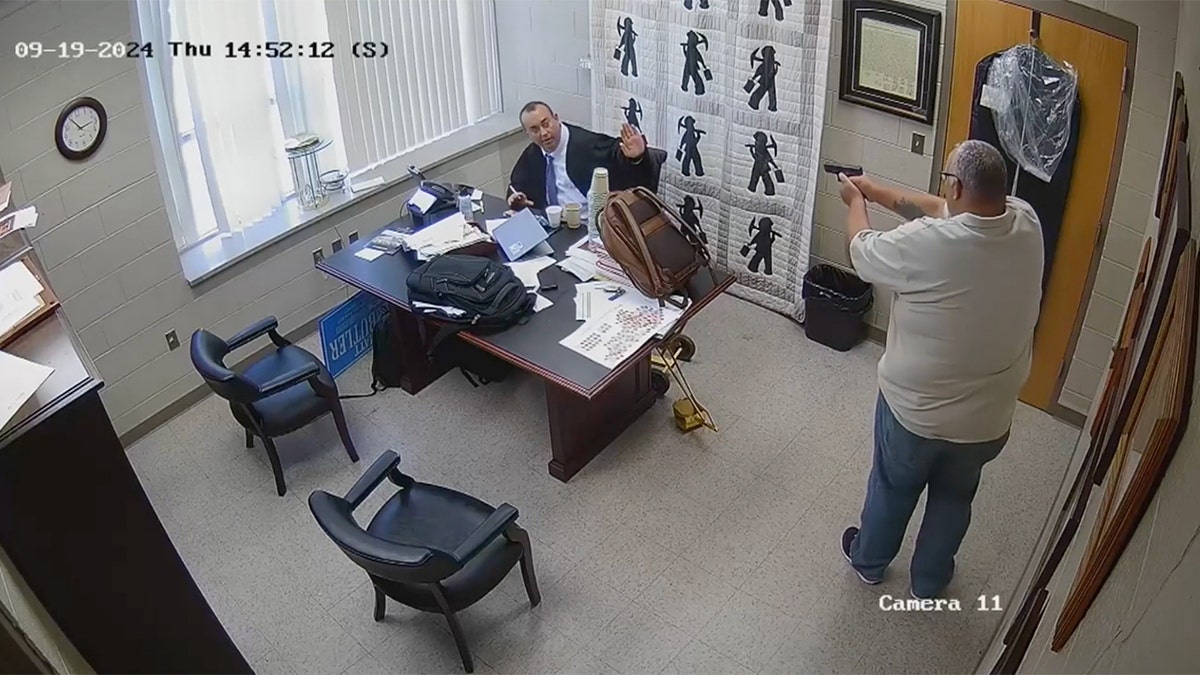
“On the day that this [shooting] happened, my client had attempted multiple times to contact his wife and daughter, and he firmly believed that they were in danger,” Bartley said. “He believed that they were in danger because of what he knew to have happened within the courthouse. And there was pressure, and there were threats made to him to sort of keep him in line, to keep them from saying more than these folks wanted him to say.”
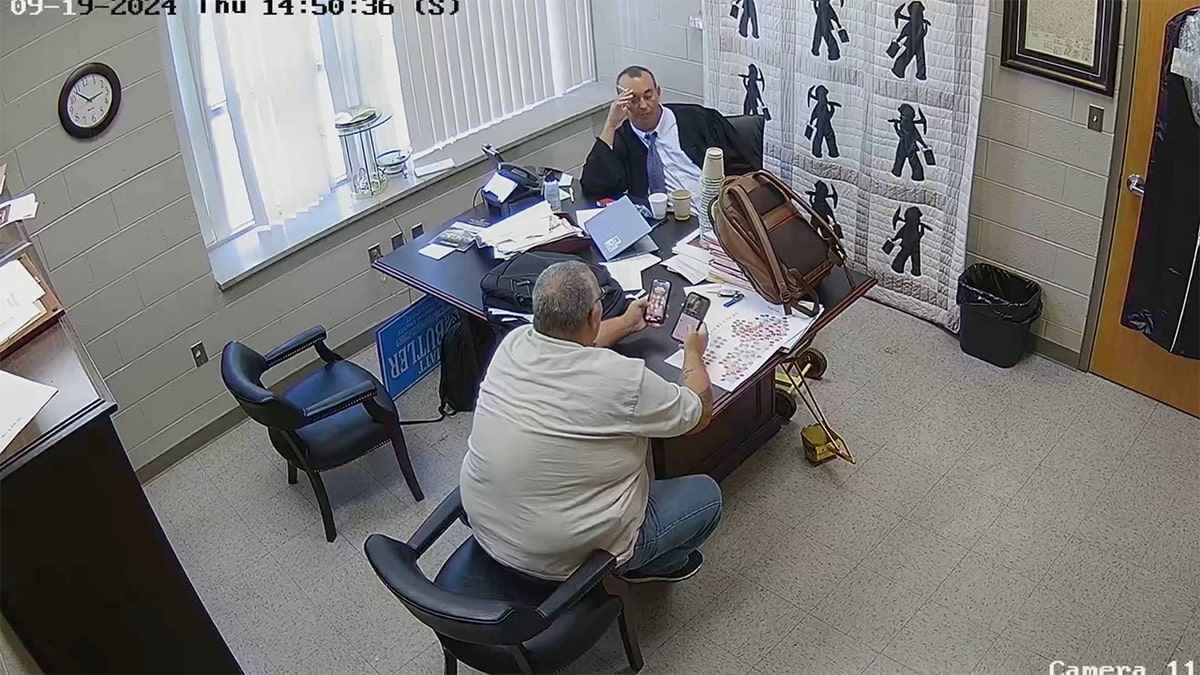
Bartley is planning an insanity defense.
Stines had been deposed just days prior in the explosive lawsuit, which was fraught with accusations of sexual abuse in the Letcher County Courthouse, specifically in Mullins’ chambers, just three days prior to allegedly killing the judge. Stines was named as a defendant in the civil case, but only insofar as he allegedly failed to properly supervise the deputy who is the primary target of the suit.
The attorney for the plaintiff in that case, Ned Pillersdorf, lobbed accusations about the culture of the courthouse in an interview with Fox News Digital last week.
“Just my general concern as a criminal defense lawyer … they were running a brothel out of that courthouse,” Pillersdorf said. “I mean, the pimping – at least three women we know of, though I think it’s higher.”
Pillersdorf conducted the deposition with Stines three days before the shooting, and also noted that Stines was acting oddly.
Bartley did not return a request for comment Friday.
Prosecuting attorney Jackie Steele has not returned multiple comment requests.
What a forensic psychiatrist, body language expert says:
“The sheriff is obviously suffering mental impairment, though it is unclear exactly what his diagnosis or combination of diagnoses is,” Dr. Carole Lieberman told Fox News Digital, adding that sleep deprivation could be an aggravating factor to a mental illness.
Lieberman, a psychiatrist and mental health practioner who has been an expert witness in cases ranging from attempted homicide and domestic violence to celebrity divorce proceedings, said that Stines’ most obvious symptom of mental illness is his paranoia.
“Regardless of how many times they tried to reassure him that they were going to keep him safe, he would not let go of this delusion that their intentions were to kill him,” she said.
She described Stines as “panicky” during his interaction with law enforcement, and noted that the shuffling in his chair was an attempt to comfort himself.
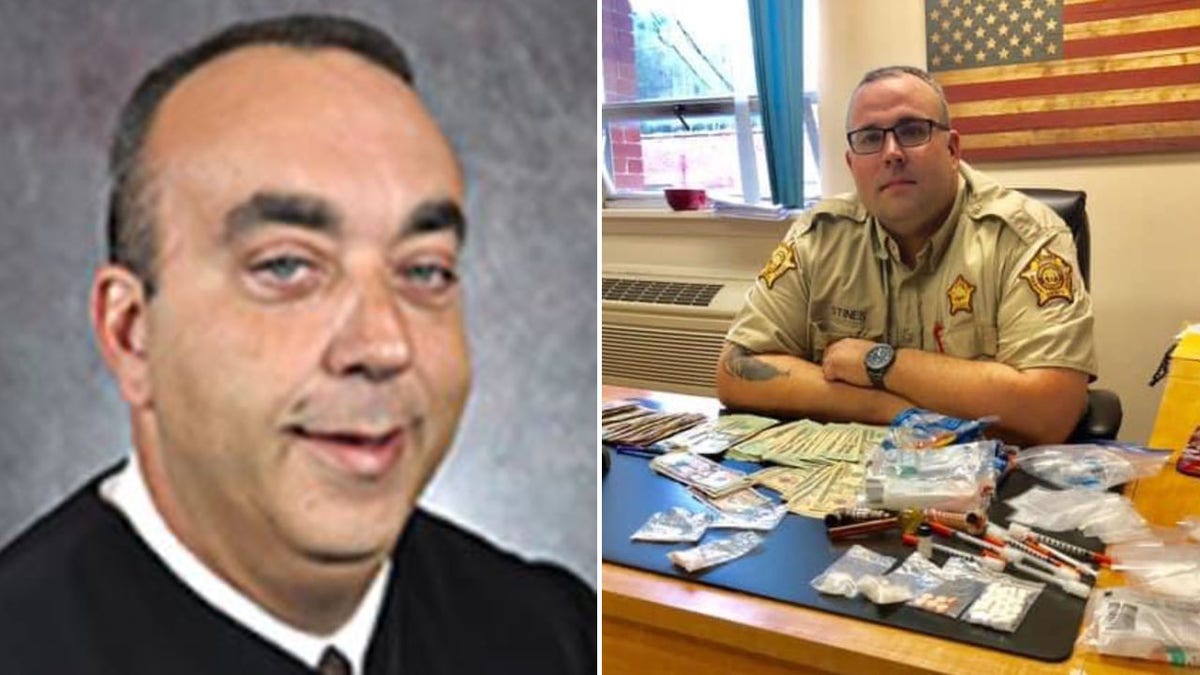
“The sheriff is in obvious discomfort, with his protruding abdomen taking over his presence, and rocking back and forth in the chair – which is self-soothing behavior,” she said. “He is constantly grimacing, reflecting his physical and emotional pain.”
Another condition that could have contributed to Stines’ behavior is called Brief Reactive Psychosis, and could have resulted from his deposition in the civil lawsuit three days earlier, according to Lieberman.
She said that such a condition could have occurred “as a reaction to his having given a stressful deposition in a ‘sextortion’ case and being sued civilly himself, then suddenly realizing that his coworkers in law enforcement and the courthouse could turn against him if his testimony implicates them in criminal behavior.”
“He seems to feel pressure from threats (real or imagined) to keep him from saying too much,” she said.













